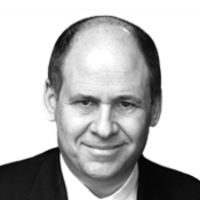For most of 2015, the prospects for peace between Israelis and Palestinians have been at an all-time low. This may still be true, especially with the world now focused on war with ISIS. But after Israeli Prime Minister Benjamin Netanyahu’s recent trip to the United States, I’ve noticed a few straws in the wind—not green shoots or even glimmers yet—that suggest some hope remains.
The hope is, strangely enough, connected to ISIS and Iran. An interview held this month in New York with Isaac Herzog, leader of the Israeli opposition, confirmed the impression.
Recent events have been hard on the optimists. In the March elections, Herzog’s Labor Party—sobered by the Hamas missiles and tunnels aimed at Israel from Gaza in 2014—downplayed its traditional support for peace. Netanyahu, facing what seemed like a close contest, pandered big time to his rightwing base, rejecting a two-state solution in the closing days of the campaign and fueling racism toward Arabs. He won big.
This fall, the climate deteriorated further when a struggle broke out over the Temple Mount in Jerusalem. Angry young Arabs living in East Jerusalem began randomly stabbing Jews. Last week alone five Jews were killed in two stabbing and shooting attacks carried out in Israel by Palestinians.
The terror wave has spread fear and sent Bibi’s poll numbers skyward. Palestinian leaders didn’t orchestrate the violence but they incited it with messages of hate. Netanyahu responded by linking Palestinian President Mahmoud Abbas to the late mufti of Jerusalem, who during World War II became a Nazi sympathizer. Netanyahu even made the historically ridiculous argument that the mufti invented Hitler’s anti-Semitism and gave him the idea of launching the Holocaust.
Just when the chances for peace looked grim, they grew grimmer with the Paris attacks. In the short run, terrorism almost always impedes peace by spreading fear.
So where’s the hope? The answer is a confluence of interests that was present before Paris and could prove increasingly persuasive to policymakers after the shock of the ISIS attacks and the French retaliation fades. War and crisis set things in flux; motion—even policy disarray—sometimes offers opportunities.
This is especially true when the idea of reviving and strengthening Arab nationhood is at the center of any efforts to stabilize the region. Disorder and the absence of clearly delineated nation-states feed terrorism. Nationalism, as bad as it’s been in the Middle East since World War II, is once again the only path forward. And it may be starting to dawn on Netanyahu that this also applies to the Palestinians.
Bibi came to the United States this month to repair the rupture in U.S.-Israeli relations over the Iran nuclear deal, which he fervently opposed. After his repeated trashing of Obama, he was hammered at home for jeopardizing the country’s essential strategic partnership.
So even though Netanyahu and Obama detest each other personally, their meeting went well. Contrary to GOP claims that he’s anti-Israel, Obama had already provided more military aid to Israel than any previous president. Now that support will grow further, to a reported $5 billion a year, much of it to combat an anticipated surge in Iran’s military spending after its assets are unfrozen as part of the deal.
At least some of the American money is expected to go toward helping Israel interdict Iranian arms shipments to Hezbollah and other terrorist organizations that threaten Israel.
These were bilateral talks but the effort to contain Iran and confront ISIS—top priorities for Israel—are multilateral. Already, Israel is cooperating behind-the-scenes with Egypt, Jordan, Morocco, the Gulf states and other Arab neighbors. It was involved in humanitarian help to Syrian refugees before Paris. Even while refusing to accept refugees itself, Israel will inevitably get more heavily involved in what is developing into a massive global refugee challenge, worsened by post-Paris fears.
Whether we see more explicit cooperation between the crack Israeli military (using much French-built equipment) and other states fighting ISIS remains to be seen. But Israel has by far the best and most experienced fighting force in the region. Israeli intelligence, technical expertise, and training programs are all relevant to the fight against ISIS.
Here’s where peace comes in. For years, the former members of the Israeli national security community (including former heads of Mossad and Shin Bet) featured in the documentary The Gatekeepers have argued that an effective policy toward Iran and the jihadists threatening Israel requires a deal with the Palestinians.
Netanyahu is showing signs of sensing the same thing. He knows that he cannot fully partner with Israel’s former enemies on his top foreign policy priorities unless he begins to deal with an issue that still sticks in the craw of Arabs everywhere.
The Palestinian struggle should no longer be seen as the legitimate grievance behind global terrorism—a quaint 1970s-era argument at this point. ISIS clearly doesn’t care any more about Palestinians than it does about people eating out or going to a concert in Paris or New York.
But even post-Paris, Arab governments won’t publicly ally with Israel without some progress toward peace. They need that to explain to the Arab street in their respective countries why they have suddenly allied with an enemy of nearly 70 years.
“They share a common interest with Israel,” Herzog—who eight months ago was touted as the next Israeli PM—told me and a few other reporters assembled by the Israel Policy Forum this month. “It’s an historic opportunity to share know-how and renew the peace process.”
This is a bank shot, but a promising one. “There is an objective shared interest between Arabs and Israelis,” former British Prime Minister Tony Blair wrote pre-Paris in Haaretz. “The Palestinian issue is the key which opens this door.”
Post-Paris, the idea of Israel joining with the rest of the world—including former Arab enemies— in a war on ISIS is increasingly plausible. Then comes the hard part. When the U.S., Russia, and the stable Arab states in the region go about re-assembling functioning states in Syria, Iraq and Libya, they might as well add Palestine to the list. If there’s a big regional summit after ISIS is smashed—a likely outcome—they almost certainly will.
The most important thing to Netanyahu is political survival, which now requires at least some progress toward peace. After the White House meeting, he completed his reversal from his March pandering by once again publicly endorsing a two-state solution. He then continued his fence-mending tour by speaking and answering questions at the Center for American Progress, a Democratic think tank.
This was an effort to show that he knew he had become too identified with the Republican Party (his ambassador to the U.S., Ron Dermer, is an American-born former GOP operative). In his remarks, Netanyahu suggested he might take vague “unilateral” steps toward peace, a comment largely unreported in the United States that set off shock waves in Israel, where right-wingers in Netanyahu’s cabinet attacked him for selling out settlers.
It may be that Bibi was just pandering again—this time to American liberals. “When he says it in English, I expect deeds in Hebrew,” Herzog says.
But Herzog believes Israelis may be giving up on just “managing the conflict.” He recalled how the granddaughter of a Jewish woman stabbed by a Palestinian went on TV recently and instead of being angry toward Arabs (the usual response of victims), insisted the fighting must end.
“In the past it would have all been hate,” Herzog said. “But this kind of terror—kids killing kids—opens up the question of, ‘Are we on the right track? Afterwards, people are saying, ‘Why do we have to pay them [Arabs living in Israel] social security?’ A silent majority is saying, ‘It has to end, we have to separate, though it’s almost too late because of the settlements.’”
Netanyahu is also feeling pressure at home and abroad from more secular Jews. He recently moved to bolster the institutions of Reform Jews in Israel, again infuriating his right-wing base among the Orthodox. In Florida this month a convention of American Reform Jews hosted not just Vice President Joe Biden but two of Israel’s progressive stars—journalist Ari Shavit, author of the acclaimed book My Promised Land, and Stav Shaffir, a young female Knesset member with a growing following. A new alliance between Israeli progressives and American Reform Jews could become a potent force for re-starting the peace process.
Pressure is coming from Europe, too, though it will be preoccupied with ISIS for the foreseeable future. While a full Boycott, Divest, and Sanction (BDS) campaign would be counter-productive—driving Israeli moderates away from peace efforts—the recent decision by the European Union to label all goods produced inside illegal West Bank settlements “is working,” Herzog says, though he thinks it’s wrong because it hurts Palestinian workers as well as Israel.
Finally, a major Herzog rival, Yair Lapid, a charismatic former finance minister and TV anchor who has all but announced he is running for prime minister in the next elections (likely late next year), is so sure that the mood of the electorate is moving back toward peace that he is basing his incipient campaign on support for a variation on the 2002 Arab Peace Initiative.
None of these factors suggest anything significant will happen before the next elections in Israel and the United States. Even then, the odds are against peace, which at present is being badly overshadowed by war. As John McCain likes to say: “Sometimes it’s darkest just before it’s pitch black.”
But Herzog points out that it was a mere four years after the 1973 Yom Kippur War that Anwar Sadat electrified the world by traveling to Jerusalem, beginning a process that led to the 1978 Camp David Accords. When Herzog was running for prime minister this year, he promised to travel to Ramallah, a symbolic move toward peace that he’s not expecting from Netanyahu.
Even so, Herzog concludes that, “We must try again.” Events are in the saddle, as Emerson wrote, riding fast in a direction that may yet allow the world to think anew about one of its most intractable problems.





